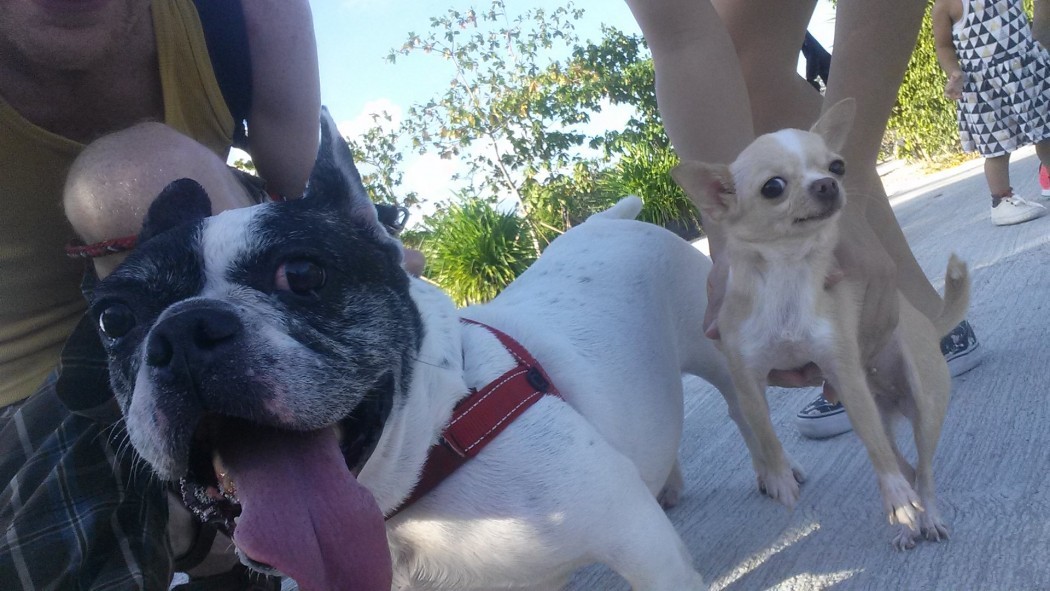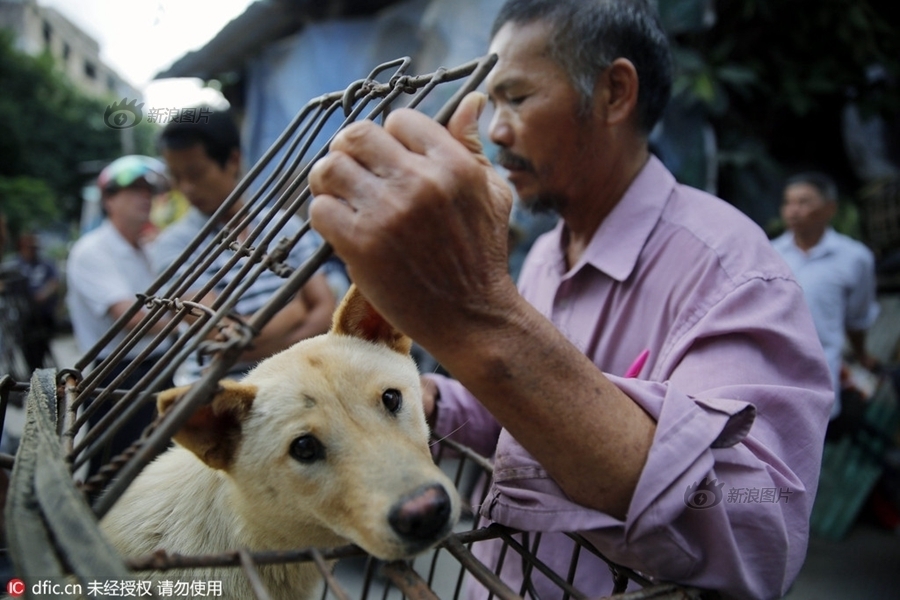By Innocent Mutanga.
Millions of signatures have been collected on a petition to ask the Chinese government to ban the Yulin dog eating festival. Many hashtivists have stood up against what they consider a violation of animal rights. In this article, I attempt to share my thoughts on this issue and express what I think animal rights activists might need to look at before they raise their banners. I will also try to put the case for the Yulin people.

I heard a story of a certain white male anthropologist in a society which practiced endocannibalism; eating their own family members after they have died. The anthropologist was disgusted by the practice, as many of us would be. Later on, his translator, a local villager, had a question to ask the anthropologist. There was news of war in which the white man’s country was a major player and many deaths were recorded. “Wow, how do you finish eating all these people that died in the war?” he asked. Thee anthropologist looked at him with extreme disgust at his question. “We do not eat them, damn it!”, he responded. “So why do you kill them then?” the man replied. This story might be true or not, but it captures some truth of what we experience in the 21st century. The anthropologist was not aware of the ‘senseless’ things in his own society. Killing people in the name of war had become a norm, so that it took this villager to highlight how abnormal it was. This is not very different from the petitioners’ encounter with the Yulin people. Our knowledge or understanding can be so situated and yet we never attempt to question it. As has been said somewhere, “Why do you see the speck that is in your brother’s eye, but do not notice the log that is in your own eye?”
The Yulin dog eating festival is an annual festival that lasts for about a week or so, during the summer solstice; where the Yulin people come and feast on dogs and lychees. The festival is almost as twice as old than the United States of America, though some argue that the festival had stopped and then was revived recently in 2009.
Among many things; I think what we fail to comprehend is the different places dogs occupy across cultures. My first time in the US, a new friend cancelled a group discussion session for the reason he was not ready to share at that moment. I couldn’t hold my curiosity from exploding on what had happened that made him to cancel such an important session, so I asked and he responded, “Lucy died so…”, he couldn’t finish and tears were already running down his cheeks. I felt really bad for having asked. I wondered, “Was she your sister?”. “No, she is my dog..”. Upon hearing this, I fell off my chair, I just could not hold my laughter, I rolled over on the ground laughing so loud, holding my stomach as this had been the funniest encounter I had had in the few days I had been in the US. I know this could offend some people, but hear me out. It was funny for two reasons: he had referred to Lucy as ‘she’, and he was mourning because a dog had died. I had not heard of such things in my life.

In Hong Kong, I have friends in my young-adults church fellowship who gets offended with some of my jokes which tend to be associated with what they call animal brutality. I do understand where they are coming from now, but not before Lucy’s death. For example two of these friends have had dogs as pets all their lives. But on my side, I grew up kicking dogs almost on daily basis. In Zimbabwe, we even have wisdom embedded in proverbs on how to hit a dog effectively. I am not saying all Zimbabweans beat dogs, but it was my favorite thing to do: beating dogs when they enter inside the house or beating the neighbour’s dogs when they trespass into my compound. For me, dogs were one thing: guards, they were not family. And it’s not very different with the Yulin people, the dogs they eat are raised in farms, just like every other livestock, they are for making profit. I am aware that some activists claim that the Yulin people go and ‘kidnap’ dogs for this festival, but I am reluctant to buy that. The Yulin people also have dogs as pets, and they have some affection for these pets, they do not eat these, but they surely have no any attachment with a dog raised on a farm which they have never seen.
Eating dogs is not only seen as cruel, but it falls in the category of a taboo in many societies. But how amusing it is that we want to impose our taboos on others, and yet we are not aware that so many foods we eat are taboo to other people but they never come to our doors raising banners commanding us to stop eating. One common thing the Yulin people would say if you mention how brutal it is that they eat dogs. They would say, they also see killing cows as brutal. And yes it is brutal and it is a taboo in some societies. Marvin Harris, a famous anthropologist once said the following to Psychology Today, “”Westerners think that Indians would rather starve than eat their cows. What they don’t understand is that they will starve if they do eat their cows. During droughts and famines in India, farmers who succumb to the temptation to kill their cows seal their [own] doom; for when the rains come they will be unable to plow their fields.” Not everybody would agree with Marvin Harris’ cultural materialism approach, even some Hindus wouldn’t agree with him. But, if you look at it closely, it makes sense: cows provide dung for fuel, manure and plastering, milk, etc.

I grew up in a society where a cow is the most valuable thing one could own, it is what determines whether you will die a poor man tilling the fields of others for survival or you will be the one whose fields are being tilled by those without cows. We do eat beef, but killing cows is always a difficult and an emotional mountain to climb. It was joke seeing the international community scream about the killing of Cecil the lion in Zimbabwe; it was funny for many reasons, a friend wrote a beautiful article in the New York Times which is titled, “In Zimbabwe, we don’t cry for lions”. A few days ago, my mom called me and told me that three lions have been roaming around our rural home and attacked three cows, and yes, they could attack people too. It is very offensive to me when I see people raising their banners protesting to protect animals which are so dangerous to my existence. Recently, I was hiking with a Hong Kong friend, and then we saw a snake. My immediate instinct was to crush its head, and though I did not end killing it, she found my intention to be very ‘wicked’. Of course she did not understand, where I was coming from: I have witnessed 3 times, my mother being bitten by deadly savanna snakes; thank God for her appreciation of traditional medicine that she survived. So if you tell me I should spare snakes when I see them, I would have a struggle with that. Why all these stories? I think animal activists need to hear them, at least get informed of these things before they sit in front of their laptop to type all things pertaining to animal justice. The reason animal justice efforts do not seem to work is because of the immense lack of understanding of the context in which the ‘problem’ occurs.
On the issue of being offended. We are so self-centered that we are often blind to how much we offend other people. We are so much offended by nice folks simply enjoying their dog meat. My family totem is related to sea creatures. Sea creatures are very central to my family’s identity; they take the position of gods, if you will. Guess what? If I were to respond in the same way as the animal rights activists do, I would go around with banners into your kitchens and restaurants telling you all to stop eating fish. Dog meat embodies the identity of Yulin people, and why do we want to strip them of their identity. We often protest for people with certain identities to enjoy their civil rights. I wonder why we do not bring that same understanding and respect to the Yulin people. They never forced anyone to eat dogs, they are just being who they are, and taking that away from them is brutality. Social identities evolve, if it so bothers us, why not just let the process of evolution take its path. It happened in India; the Hindus used to sacrifice and eat meat, but when the Muslims came, some Hindus decided to identify differently from the Muslims. Muslims came eating meat and they decided not to do things Muslims do. Today, it seems so natural that some Hindus do not eat meat, but it was not always the case. Identities get constructed and they evolve, and we might as well want to embrace that reality. My time outside of Zimbabwe has changed me; I do not find kicking dogs fun anymore, and I also can’t stand a dog being slaughtered, but who am I to go around telling people not to enjoy their four hundred year old traditions and delicacies, when I also offend my Buddhist friends when I kill cockroaches.

In the end, it’s a matter of “first getting rid of the logs in our own eyes; then we will see well enough to deal with the speck in the Yulin people’s eyes. Or else, it will become the story of the anthropologist and the villager; a story so good that it awakens us to our own biases. A story so good that it encourages us to question our own ideologies and hopefully to face the skeletons in our own cupboards. I am not advocating that we should go around killing animals, but at least let us just not be hypocrites. It is very important to question our own ideologies and understand the context in which things occur before we come out and express our frustrations so emotionally.
